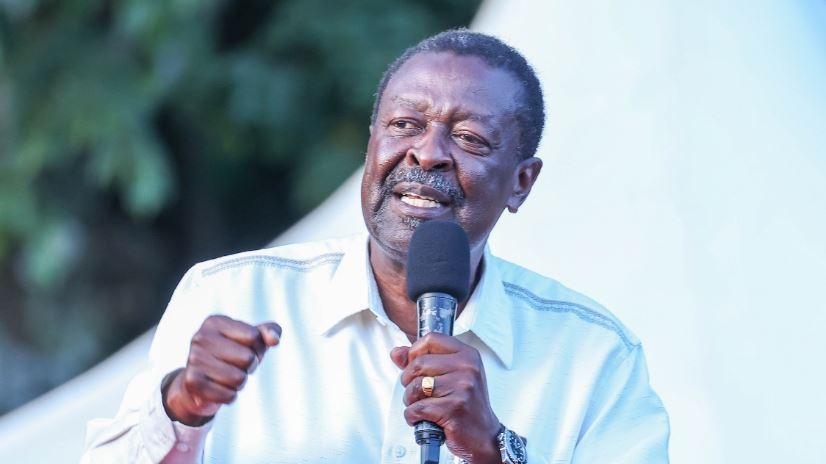On Monday evening, IEBC chairperson Wafula Chebukati declared the presidential election result shortly after four of the seven commissioners gave a short press conference distancing themselves from the imminent declaration.
The commissioners only said they had done so due to the “opaque nature” of the final process, and promised to issue a comprehensive statement later.
What I would like to address is the question whether the ‘solo’ declaration of the presidential results by Chebukati had any legal foundation. In my view, it clearly did, although many people may hold a different view.
Firstly, Article 138(10)(a) of the Constitution expressly makes it the chairperson’s duty to declare the overall result of the presidential election (ie, the declaration of the results as aggregated from all the constituencies). Some have however suggested that by dint of Article 138(3)(c), it was the commissioners who were supposed to collectively declare the overall result of that election.
I beg to differ. A quick look at Article 138 (3)(c) readily shows that this latter clause refers to the commission’s declaration of the tally from the polling stations, ie, the aggregated presidential election results at the level of the individual constituencies. Indeed, we witnessed the commissioners taking turns in declaring the results from the individual constituencies after tallying and verifying the count of the votes from the polling stations.
In order to understand the fact that the chairperson is legally empowered to declare the overall result of the presidential election, we need to see Article 138 as speaking to the election as a process, rather than as a single event.
This process includes nominating (Clause 1), voting (Clauses 2 and 3 (a) and (b)), counting, tallying and verifying (Clause 3(c)), confirming the 50%+1 and 25per cent in half the counties criteria (Clause 4), declaration of the final result by the chairperson (Clause 10 (a)- and, finally, notification of the final result to the Chief Justice and the President (Clause 10 (b)). To read Article 138 (3)(c) as referring to the final declaration of the presidential election is therefore an error.
That said, some have referred to the 2nd Schedule to the Independent Electoral and Boundaries Commission (IEBC) Act as the basis for suggesting that Chebukati’s declaration ought to have been either a “unanimous decision” or through “concurrence of a majority” of the commissioners.
The quoted part of the IEBC Act however deals with the operational business and affairs of the commission, on matters on which it is required to make a “decision”. Legally speaking, however, the declaration of the winner of the presidential election was never a matter for the “decision” of the commission.
Rather, the declaration logically followed from the input in Forms 34A, B and C, and culminated in Form 34D. To drive the point home, the actual “decision” was made on the ballot on August 9, 2022.
As a matter of fact, the IEBC Act has hardly any provisions regarding the actual conduct of elections. The Elections Act is the primary legislation contemplated by Article 82(1)(d) of the Constitution to provide for, inter alia, “the conduct of elections”. Section 39(1H) of the Elections Act provides that “the Chairperson of the Commission shall declare the results of the election of the President in accordance with Article 138(10) of the Constitution”.
Arguably, it is desirable for the commissioners to ‘approve’ or ‘authenticate’ the result to be declared, if only to give it ‘more weight’ or ‘credibility’ in the public eye.
However, such approval or authentication is not a shared responsibility between the chairperson and the other commissioners, nor is it in fact a constitutional or legal requirement. Legally speaking such ‘approval’ or ‘authentication’ (or lack of it) is, therefore, of no constitutional or legal effect.
At the level of simple logic, it is impractical for all seven commissioners to be expected to declare the final presidential result. This indeed is the reason why both the Constitution and the Elections Act donated the power to do so to the chairperson.
The fact that the declaration, as I have said earlier, is only the logical end result of the input from Forms 34A, B and C makes it a mere formality for the chairperson to make the declaration.
What I think is more important is for us to direct our minds to whether the IEBC conducted the election in compliance with the various standards set out in Article 86 of the Constitution.
These include a simple, accurate, verifiable, secure, accountable and transparent system, open and accurate collation, and the existence of appropriate structures to eliminate electoral malpractice.
WATCH: The latest videos from the Star













![[PHOTOS] Family, friends receive body of Raila’s sister, Beryl](/_next/image?url=https%3A%2F%2Fcdn.radioafrica.digital%2Fimage%2F2025%2F11%2Fdfe6a9bf-ede1-47a4-bdc0-4f564edb03dd.jpeg&w=3840&q=100)

